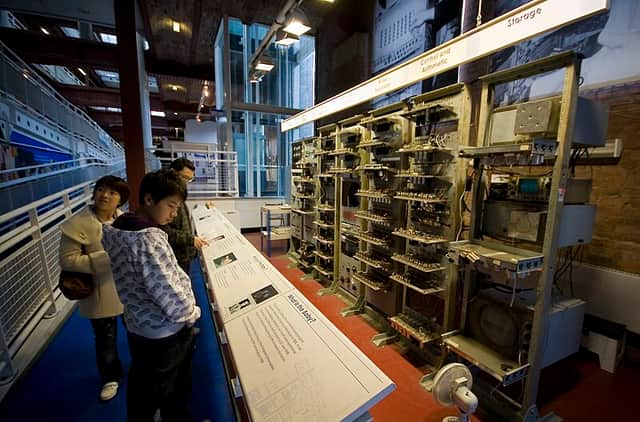Manchester Baby computer: how it influenced computing and the impact it still has today


In 1948, 75 years ago, the world took a major step towards a new, computational future with the invention of the "Manchester Baby".
The Manchester Baby, also known as the Small-Scale Experimental Machine (SSEM), was the world's first electronic stored-program computer, designed and built at the University of Manchester by a team led by Frederic C. Williams and Tom Kilburn.
Advertisement
Hide AdAdvertisement
Hide AdThe project - part of the university's efforts to explore and develop practical applications for the newly emerging field of electronic computers - produced an experimental machine that demonstrated the concept of stored-program computing.
Simply put, a stored-program computer is a type of computer architecture which allows a machine to perform a variety of tasks by running different programs, and without the need for manual modification of the hardware. The Manchester Baby used a cathode ray tube (CRT) as its memory, where data and instructions were stored electronically.
Without the Manchester Baby, we may not have the digital world in which we now live
The successful operation of the Manchester Baby on 21 June 1948, marked the first time that a stored-program computer executed a program, a significant milestone in the history of computing that showcased the potential of electronic computers as universal machines capable of performing various tasks.
Without the Manchester Baby, we may not have the digital world in which we now live, and the project's breakthroughs led to the development of subsequent computers, including the Manchester Mark 1, and influenced the design of future computing systems worldwide.
What impact did the Manchester Baby have?
Advertisement
Hide AdAdvertisement
Hide AdThe ideas and concepts developed during the creation of the Manchester Baby had a profound impact on the evolution of computing and laid the groundwork for the digital era we live in today.
Without its existence, the development of electronic computers may have been significantly delayed, which could have postponed the advent of computers in various fields, such as scientific research, business and government, limiting their impact on society.
The Manchester Baby's influence on computer architecture and programming languages also shaped how we interact with computers. Without it, the evolution of user interfaces, software development tools and human-computer interaction might have followed a different path, affecting the accessibility and widespread adoption of computers in various domains.
How have computers changed the world?
Perhaps the biggest way in which computers have revolutionised the way in which we interact with our world and with one another is through their provision of unparalleled access to information. With the internet and search engines, people can quickly find and retrieve vast amounts of information on virtually any topic, which has transformed the way we acquire knowledge and access educational resources. Coupled with technologies like email, instant messaging and social media platforms, people are able to connect and communicate this information across vast distances in real time.
Advertisement
Hide AdAdvertisement
Hide AdFrom a work point of view, computers have automated numerous tasks and processes, enhancing productivity and efficiency both in industry and in the office, reducing human error and accelerating the pace of work, and digital tools have enabled people to unleash their creativity and pursue artistic endeavours.
But the advent of computers has also brought about significant societal challenges and ethical considerations, such as cybersecurity, privacy, fake news, and the impact of automation on employment requiring careful consideration and regulation to ensure responsible use and mitigate potential negative consequences.
As we stand on the precipice of yet more computational advancements with advanced algorithms, machine learning and artificial intelligence techniques raising ethical considerations around the authenticity and integrity of generated content, Manchester Baby's computational foundations will continue to be felt for decades to come.
Comment Guidelines
National World encourages reader discussion on our stories. User feedback, insights and back-and-forth exchanges add a rich layer of context to reporting. Please review our Community Guidelines before commenting.
